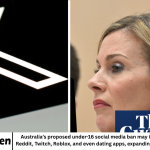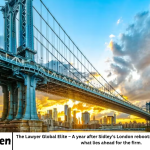The expiration of federal oversight over the Metropolitan Police Department (MPD) in Washington, D.C., marks a major turning point for the city’s law enforcement landscape. For decades, the nation’s capital has existed in a unique legal and political gray zone, with Congress exercising outsized authority over local governance and security. Now, with oversight officially expired, the spotlight turns to what comes next. Yet in the same breath, the continued presence of the National Guard in the District raises both relief and concern. While some see this as a necessary safeguard for national security, others argue it reflects ongoing mistrust of the city’s ability to handle crises independently. This delicate balance between autonomy and federal intervention sets the stage for an ongoing debate about policing, democracy, and safety in America’s most politically symbolic city.
- A Historic Moment for D.C. Policing
- The Role of the National Guard in the District
- Political Ramifications and the Statehood Debate
- Community Reactions: Relief and Skepticism
- Law Enforcement Perspective
- The Federal Government’s Balancing Act
- Historical Context of Federal Oversight
- Security and Civil Liberties at a Crossroads
- The Broader Implications for American Democracy
- Looking Ahead: What Comes Next
- FAQs
- Why did federal oversight of the D.C. police expire?
- Why is the National Guard still in Washington, D.C.?
- Does the D.C. mayor control the National Guard?
- How are D.C. residents reacting to the changes?
- What does this mean for the D.C. statehood movement?
- Conclusion
A Historic Moment for D.C. Policing
The expiration of federal oversight is not just a bureaucratic development—it is a moment loaded with political and cultural significance. For years, Washington, D.C.’s Metropolitan Police Department has operated under layers of scrutiny imposed by both the federal government and the city’s own oversight bodies. The arrangement reflected deep-seated concerns about accountability, particularly in a city that has long struggled with questions of representation and self-governance.
Federal oversight had often been framed as a way to ensure that the city’s police force maintained high standards of conduct and avoided systemic abuses. Its end signals a vote of confidence from federal authorities but also introduces new risks. With Washington, D.C., lacking full statehood and subject to congressional authority, the expiration of this oversight creates a new dynamic where local officials are more directly accountable for policing outcomes. Critics worry this could weaken transparency, while supporters argue it allows the city to finally step into its own shoes as a semi-autonomous entity.
The Role of the National Guard in the District
Even as oversight of the police department wanes, the National Guard remains a constant presence in Washington. Since the January 6, 2021 attack on the U.S. Capitol, the Guard has been repeatedly deployed to the city, underscoring its status as both a political nerve center and a target for unrest. The continuation of this presence reflects a calculation by federal authorities that the capital remains uniquely vulnerable to threats ranging from political protests to terrorism.
However, the Guard’s ongoing role raises sensitive questions about militarization. Critics note that keeping troops in a city of more than 700,000 residents blurs the line between civilian policing and military readiness. While their presence provides reassurance during times of heightened tension, it also serves as a reminder that Washington is treated differently than other American cities. Unlike in states, the mayor of D.C. lacks the authority to unilaterally deploy or command the Guard; that power ultimately resides with the president and the Pentagon. This arrangement highlights the city’s incomplete autonomy and ongoing dependency on federal decision-making.
Political Ramifications and the Statehood Debate
The twin developments—federal oversight ending but the Guard remaining—feed directly into one of Washington’s longest-running debates: statehood. Advocates for D.C. statehood argue that the expiration of oversight proves the city can govern itself effectively. They point to improvements in policing practices, reductions in violent crime in certain neighborhoods, and community-driven reforms as evidence of local accountability.
Opponents, however, argue that the continuing need for the National Guard demonstrates why Washington should not be granted full autonomy. They claim that as the nation’s capital, the city requires a special security arrangement that would be compromised if it were treated like a state. This tension has been central to statehood legislation introduced in Congress in recent years, which has often passed in the House but stalled in the Senate.
Community Reactions: Relief and Skepticism
On the ground, residents and community leaders express mixed feelings. For some, the end of federal oversight is seen as a hard-earned step toward dignity and self-determination. Reverend Angela Jackson, a community organizer in Northeast D.C., explained in an interview, “For decades, we’ve been told that we need babysitting from Congress. But our people know what safety means in our own neighborhoods. We’ve worked hard for reforms, and we deserve to chart our own course.”
Others remain skeptical. Crime, particularly gun violence, remains a pressing concern in the District, with more than 200 homicides recorded in 2024. Some residents fear that without federal checks, the MPD could backslide into practices that erode trust, especially in predominantly Black neighborhoods where policing tensions have historically run high. “It feels like we’re trading one set of problems for another,” said James Robinson, a longtime D.C. resident. “We want accountability, but who’s making sure that happens now?”
Law Enforcement Perspective
From the perspective of law enforcement, the expiration of oversight represents both a relief and a challenge. Police officials argue that local accountability is preferable to external micromanagement. Acting MPD Chief Marcus Green noted, “This change allows us to focus more on community priorities without constantly navigating a second layer of bureaucracy. But it also means we have to step up in new ways because the responsibility lies squarely with us.”
Yet this shift comes as the department grapples with recruitment shortages and the lingering effects of nationwide scrutiny on policing practices. With fewer officers than a decade ago and rising demands for community policing, the MPD faces significant challenges ahead. The expiration of oversight will test whether the department can sustain reforms on its own, or if it risks sliding into old patterns.
The Federal Government’s Balancing Act
Federal authorities face their own balancing act. On one hand, ending oversight signals trust in D.C.’s local institutions. On the other hand, maintaining a National Guard presence reveals lingering doubt. Security experts point out that Washington is unlike any other city in the United States because of its concentration of federal buildings, foreign embassies, and protest activity. Dr. Linda Martinez, a security policy analyst, explained, “You can’t treat D.C. exactly like New York or Chicago. The threats here are different, and so is the symbolism. That’s why the Guard remains such a critical tool, even when it creates tension.”
Historical Context of Federal Oversight
Federal oversight of D.C. policing dates back decades, often triggered by crises in accountability. The roots can be traced to the crack epidemic of the 1980s and 1990s, when soaring crime rates and widespread corruption prompted interventions from Congress and federal agencies. Subsequent reforms created a system of dual accountability, with local leaders answering not just to their constituents but also to federal overseers.
This structure reflected both genuine concerns about public safety and a broader unwillingness by Congress to fully trust the city’s leadership. For many residents, the expiration of oversight is not just a legal shift but a symbolic milestone in the city’s long struggle for recognition as more than a “federal district.”
Security and Civil Liberties at a Crossroads
As D.C. moves into this new era, the interplay between security and civil liberties will remain a flashpoint. The presence of the National Guard raises concerns about normalization of military involvement in domestic affairs. Civil liberties groups argue that even a limited or temporary deployment risks eroding the boundary between military and civilian authority. They warn that this could set dangerous precedents, particularly in an era where political polarization heightens the risk of unrest.
At the same time, others view the Guard as a stabilizing force. Businesses, especially those in downtown corridors still recovering from the economic aftershocks of the pandemic, see security as vital to restoring consumer confidence. The sight of uniformed troops may be unsettling, but for some, it represents protection rather than intrusion.
The Broader Implications for American Democracy
What happens in Washington often echoes across the nation. The expiration of federal oversight, coupled with the ongoing Guard presence, highlights broader themes in American democracy: who gets to govern, who gets to decide on security, and how federal power interacts with local communities. In many ways, D.C. is a microcosm of tensions playing out nationwide, from debates over policing reform to struggles over local autonomy in the face of federal mandates.
The stakes are particularly high because the city represents not just itself but the entire country. Decisions made about D.C. policing and security are closely watched by foreign governments, advocacy groups, and millions of Americans who view the capital as a barometer of national priorities.
Looking Ahead: What Comes Next
The future of D.C. policing and security will hinge on several key developments. First, the MPD must prove it can maintain reforms and accountability without federal oversight. This includes building trust with communities, reducing violent crime, and addressing concerns about racial disparities in policing. Second, the federal government will need to reevaluate the role of the National Guard—how long it remains, under what circumstances it can be deployed, and how its presence impacts the city’s daily life.
Finally, the political fight over statehood will continue to shape the narrative. Every development in D.C. governance, from policing to security, becomes fodder for the larger argument about whether the city deserves the same rights as other American states. For now, Washington stands at a crossroads, straddling two identities: a community seeking self-determination and a capital city bound by federal necessity.
FAQs
Why did federal oversight of the D.C. police expire?
Federal oversight expired because authorities determined that the Metropolitan Police Department had made sufficient progress in reforms and accountability, allowing local leaders to assume greater responsibility without external intervention.
Why is the National Guard still in Washington, D.C.?
The Guard remains due to ongoing security concerns. Washington, D.C., is home to federal institutions, embassies, and frequent political demonstrations, making it a unique security environment that federal leaders consider vulnerable.
Does the D.C. mayor control the National Guard?
No. Unlike state governors, the D.C. mayor does not have unilateral authority over the Guard. That power rests with the president and the Department of Defense, reflecting the city’s lack of full statehood.
How are D.C. residents reacting to the changes?
Reactions are mixed. Some see the expiration of oversight as a step toward self-determination, while others worry about accountability and public safety. Many also express concern about the ongoing presence of the National Guard.
What does this mean for the D.C. statehood movement?
The developments fuel both sides of the debate. Supporters of statehood argue the city is ready to govern itself, while opponents claim the continued need for federal intervention underscores why D.C. should not have full autonomy.
Conclusion
The expiration of federal oversight of the D.C. police and the continuation of the National Guard presence illustrate the delicate balance between autonomy and federal control in the nation’s capital. While the end of oversight marks progress in local governance and policing reform, the Guard’s ongoing role reminds residents that Washington remains a city unlike any other in the United States. As leaders, residents, and policymakers grapple with these changes, the broader struggle for accountability, safety, and self-determination continues. Ultimately, what happens in D.C. is not just about one city—it is about the evolving story of American democracy itself.








